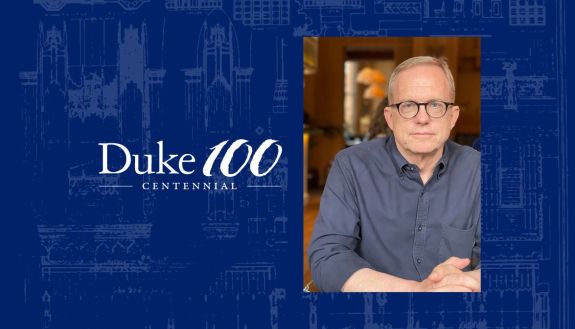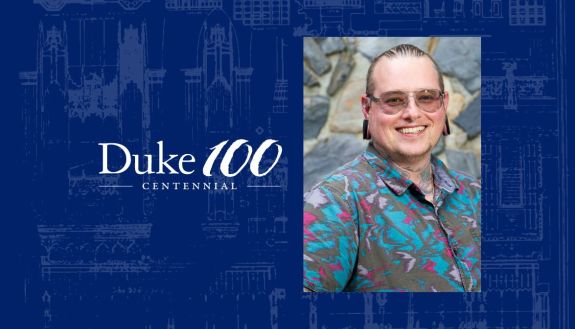A Cause for Pride at Duke
Over the years, thanks to brave students, faculty and staff, a lot has changed for the LGBTQ+ presence at Duke
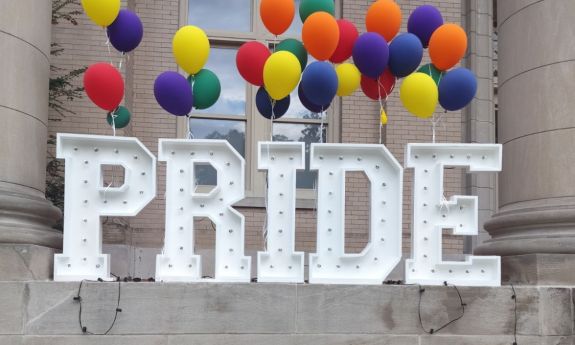
A good part of the acceptance of LGBTQ+ presence at Duke can be credited to Janie Long (and brave students, faculty and staff who worked alongside her). She was hired as director of the LGBTQ Center, the forerunner of the Center for Sexuality and Gender Diversity, in the summer of 2006. She left the post in 2014 to become the associate vice provost in the Office of Undergraduate Education – Duke’s most high-profile LGBTQ+ administrator, before retiring last year.
Today, LGBTQ+ students, staff and faculty members on Duke’s campus receive unprecedented university support, including the creation of the Center for Sexual & Gender Diversity, an update of its nondiscrimination policy to recognize gender identity and sexual orientation, same-sex ceremonies at Duke Chapel, as well as a faculty-student “Outlist” that provides resources and connections for its members. Significantly, Duke also provides gender-affirming health care.
‘It’s Coming Out Day, not Staying in Day‘
Over the decades, the LGBTQ+ experience on Duke’s campus has been filled with laughter and joy, but there have also been more than a few tears and challenges.
One of those challenges was establishing Coming Out Day as a celebration in October.
“The [LGBTQ] center at the time was down in the basement, under the walkway to the Bryan Center,” Long said about the beginning of her tenure as director. “When I started there were only about four, maybe five students, who would come into the center.
“I said to the students who were there, ‘I think we need to have a big coming out celebration, and go up on the plaza, and maybe get some rainbow balloons,’” Long said. “And the students said, ‘Oh no, no, no. We can’t do that. No, we’ll just have a little dinner here in the center and ask a faculty member to come.’ And I’m like, ‘But it’s Coming Out Day. It’s not Staying In Day.’
It was a big step from the past.
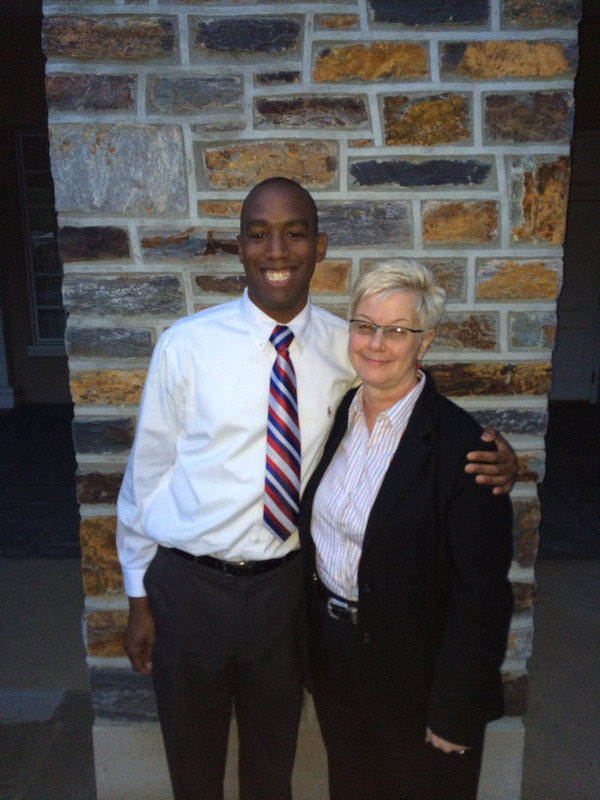
In the 1960s, the campus police arrested at least 64 gay men for the crime of “homosexuality,” according to the landmark 2014 exhibit, “Queering at Duke,” compiled by Long and Faison. The exhibit chronicles the LGBTQ+ presence at Duke between the 1960s and the 2010s. Long and Faison, with the help of Faison’s academic adviser, the late Raymond Gavins, who was the first African American to join the Duke history faculty, compiled the materials for the exhibit.
Faison had combed through the campus archives and found that the Federal Bureau of Investigation worked in concert with the campus police, then known as the University Security Division “to identify and report cases of homosexuality on campus.”
President Brodie supports LGBTQ+ rights
During the 1970s, Duke did not include LGBTQ+ students, staff and faculty in its nondiscrimination policy. Nonetheless, the decade, thanks in part to the 1969 Stonewall Riots, became known as the age of “coming out” at the school, with queer students openly acknowledging their LGBTQ+ identities without the threat of arrest or expulsion.
Still, by the early 1980s, largely owing to the AIDS crisis, the LGBTQ+ presence was “closeted again.” Moreover, Duke’s Student Government Association revoked the charter of Duke’s first queer student group.
A groundswell of change began in 1985 with the eight-year tenure of Keith Brodie as Duke’s president. Long said Brodie’s support for the LGBTQ+ community “made a huge difference here at Duke.”
‘We’ve got further to go‘
Today, challenges continue. There are 530 bills in state legislatures targeting LGBTQ+ rights, according to the American Civil Liberties Union. This year, eight such bills have been introduced in the North Carolina General Assembly, including ones that would ban gender-affirming health care and prohibit transgender students from participating in high school sports.
Duke alumnus Jesse Huddleston is one of the Triangle’s most outspoken LGBTQ+ activists.
Huddleston, who graduated in 2010, works as a senior program coordinator in Duke Community Affairs, organizing alongside community leaders involved in the Duke-Durham Neighborhood Partnership.
“Culturally, politically, socially speaking, things could always be better, right? We’ve come a long way, and we’ve got further to go.”
Jesse Huddleston, LGBTQ+ activist
Huddleston also works part-time directing the music ministry at the LGBTQ+-welcoming CityWell United Methodist Church and chairs the board of the Pauli Murray Center for History and Social Justice, along with the organizing committee for Pride: Durham, NC at the LGBTQ Center of Durham.
“All of these things integrate,” Huddleston said. “My church, the LGBTQ Center of Durham, the Pauli Murray Center” are efforts that influence each other and shape Huddleston’s strategy for community engagement.
Huddleston paused when asked about the level of acceptance on campus and in the community.
“Culturally, politically, socially speaking, things could always be better, right?” they said. “We’ve come a long way, and we’ve got further to go.”
Huddleston is grateful for the individuals and institutions, including Duke, that support LGBTQ+ members. They also emphasize how it’s important to “name” and “organize” against the “harm and violence that exist as a norm.”
Targeting transgender citizens
Transgender people are particularly at-risk. Duke alum Jacob Tobia is the author of “Sissy: A Coming-Of-Gender Story” published in 2019, five years after Tobia graduated with a degree in human rights advocacy.
During freshman year, Tobia left their dorm and headed to a nearby Dollar General store to purchase their first tube of lipstick.
“Looking at the red-lipped boy in the mirror, I felt at home in my body for the first time in years,” Tobia wrote several years later in an essay published in Duke Magazine.
Huddleston, whose coordination of the city’s Pride celebrations last month honored trans and non-binary community members, said the harms faced by trans and non-binary people are connected to the harms cisgender people also face. “A man will beat his chest before he’ll let himself cry … a woman (may not feel) pretty enough,” said Huddleston.
The LGBTQ+ leader explained how we assign gender practices in society, normalizing putting a girl in a dress and a boy in a suit, “but it’s a problem if the little boy wants to wear the dress, or if the little girl doesn’t want to wear a dress and wants to wear a blazer.
“Who is she hurting regardless of how they might end up identifying?”
Research shows that LGBTQ+ youth are more likely to harm themselves because of rejection, cultural and legislative sanctions.
Coming Out Day continues
In 2006, the year Long started as director, a student-athlete was found dead in his dorm room. She had heard from a LGBTQ staffer that the student was gay.
“I thought to myself, ‘this cannot happen again,’” Long said about the incident that still moves her to tears.
She responded by teaching an undergraduate class about the LGBTQ community and partnered with women’s studies to do a lecture series.
But she hit a snag when during the following Coming Out Day, students defaced one of their event t-shirts with a slur and draped it over a statue. Students at the center were upset.
Long took charge, and after the homophobic vandalism, announced they were going to give away the 500 event shirts she had ordered. For help, she contacted a member of the student government association, who sent out a campus-wide email blast with the announcement.
The next day, Long said students were lining up for the shirts. “The [LGBTQ] students were weeping tears of joy,” said Long.
Nearly 20 years later, National Coming Out Day at Duke continues.
Struggles remain, but today the LGBTQ presence on campus is celebrated. Staying in is no longer an option: While the music of Chappelle Roan filled the air, about 400 people and 22 campus partner organizations arrived at the Bryan Center Plaza for National Coming Out Day at Duke.
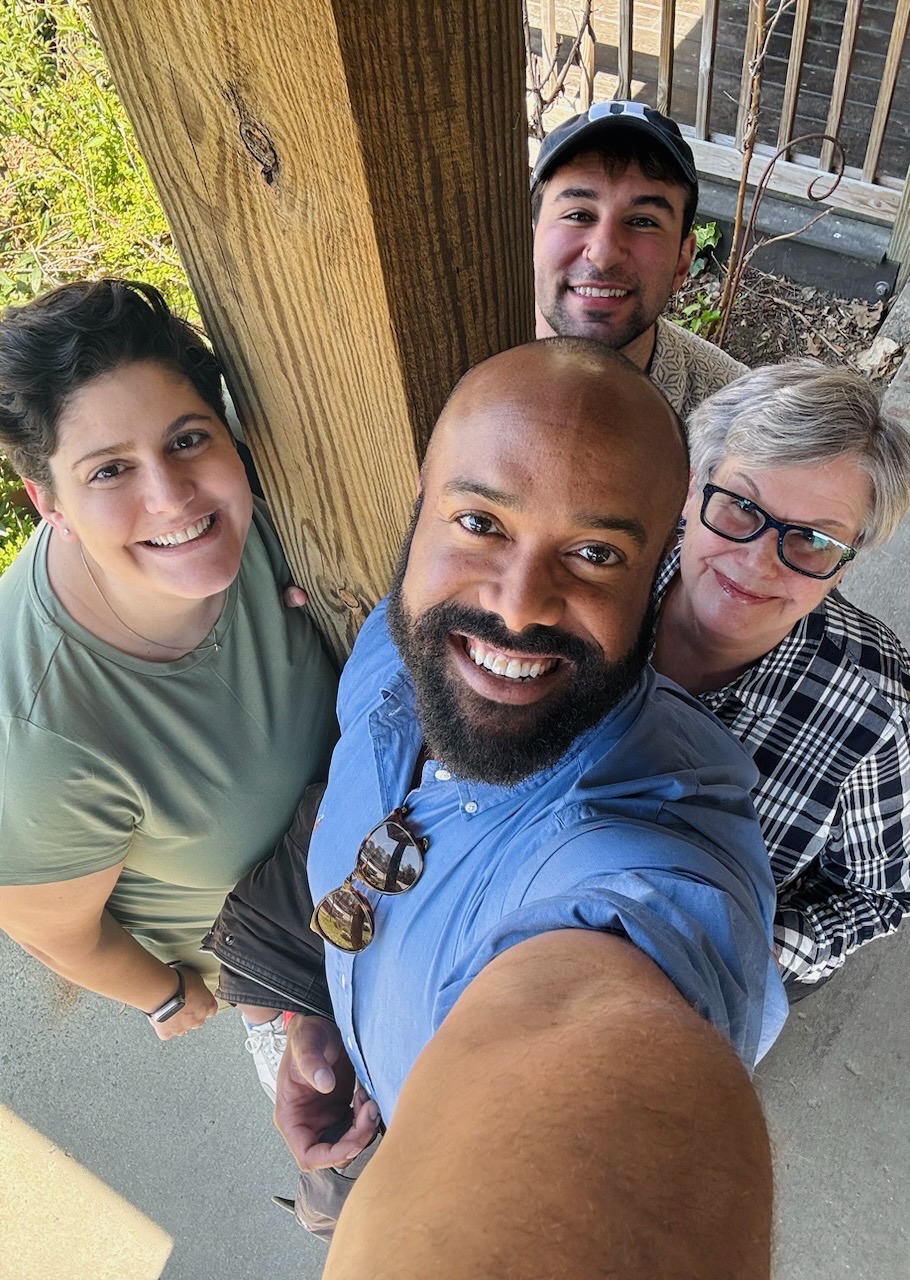
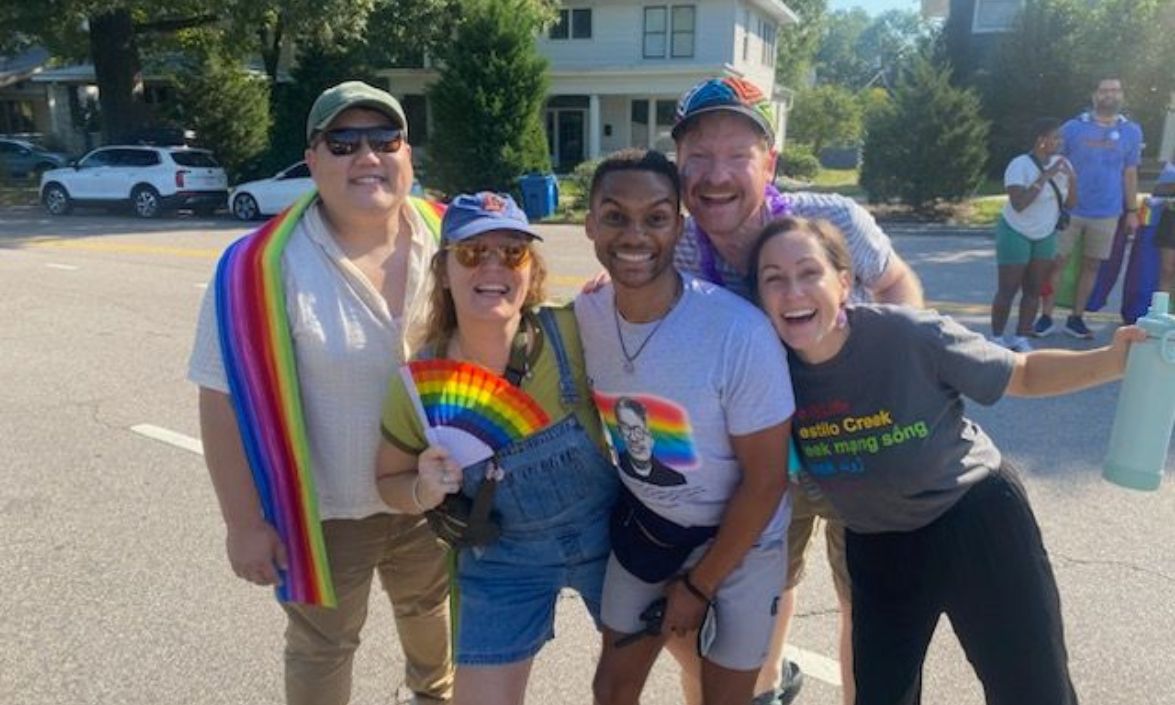
RELATED STORIES
